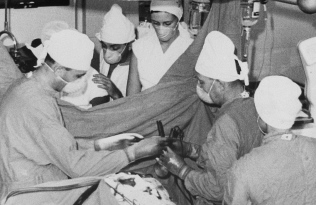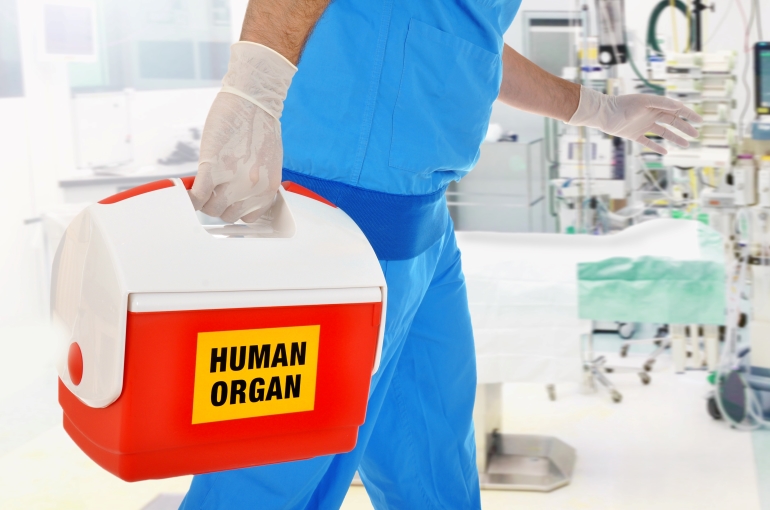
A history of UK heart transplant
The first successful UK heart transplant was an important milestone in medical history. Sarah Brealey explains how we're meeting the continuing transplant challenges.

Currently, a heart transplant is the only option for end-stage heart failure. We have funded research into heart transplantation since the early 1960s, even before the world’s first heart transplant in 1967.
Many BHF-funded researchers who have pioneered heart transplants in the UK, including Professors Donald Ross, Donald Longmore and Jane Somerville, were part of the team who performed the UK’s first heart transplant at the National Heart Hospital in London in 1968.
BHF Professor Sir Magdi Yacoub and Professor Sir Terence English received support from the BHF to make this procedure safer. BHF-funded research led by Professor David Hearse in the 1970s contributed to the development of a fluid to preserve donor hearts for longer, which was used in hospitals all over the world and helped make many more heart transplants possible.
After the initial excitement of heart transplants died down, it was clear that rejection of the donor heart was a major challenge. This happens when the body’s immune system recognises the new heart as a foreign object and attacks it, just as it would attack an infection.
In 1985, we funded the work of BHF Professor Sir Magdi Yacoub at Imperial College London to understand how and why the body rejects the donor organ.
That helped to improve survival from heart transplants, but rejection remains an issue and transplant recipients must take drugs to suppress their immune system for the rest of their lives. So we continue to fund research in this area. BHF Professor Federica Marelli-Berg at Queen Mary University London is using an innovative approach to tackle heart transplant rejection. She and her team are trying to ‘hijack’ the immune system and stop it attacking the transplanted heart. When immune cells are alerted to the donor heart, they travel through the body to reach it. The team discovered that to find their target, immune cells are armed with surface proteins that act like a GPS system, using the ‘area code’ for the heart to reach their destination. Blocking this ‘navigation system’ could lead to new treatments to reduce organ rejection.
At King’s College London, Professor Giovanna Lombardi is focusing on another type of immune cell, called a regulatory T cell or Treg. Tregs dampen down the immune response and could potentially be used to help prevent transplant rejection. Her research, part-funded by the BHF, led to the creation of a company which aims to develop Treg cell therapies to advance treatments for a range of conditions such as organ rejection, and autoimmune and inflammatory diseases.
Today, around 200 heart transplants are carried out in the UK each year. However, in early 2021 there were more than 300 people waiting for a new heart, or heart and lungs. Every day in the UK, three people die in need of an organ, and over 100 people die each year in need of a new heart.
To help solve the shortage of donor hearts, we spent many years campaigning for an opt-out organ donation system. It means that everyone is presumed to consent to donating their organs unless they register their decision to opt-out on the NHS organ donation register. We believe this reflects the public desire for donation, which shows that more than 8 out of 10 of people support organ donation. Our efforts paid off and opt-out donation was adopted in Wales in 2015, and then in England in 2020 and Scotland in 2021. A draft bill on the introduction of soft opt-out organ donation was signed off by the Northern Ireland Executive in June 2021 and is now progressing through the Assembly.
These changes are increasing the consent rate for organ donation and will give more people a chance of life after severe heart failure.
Updated 29th June 2021